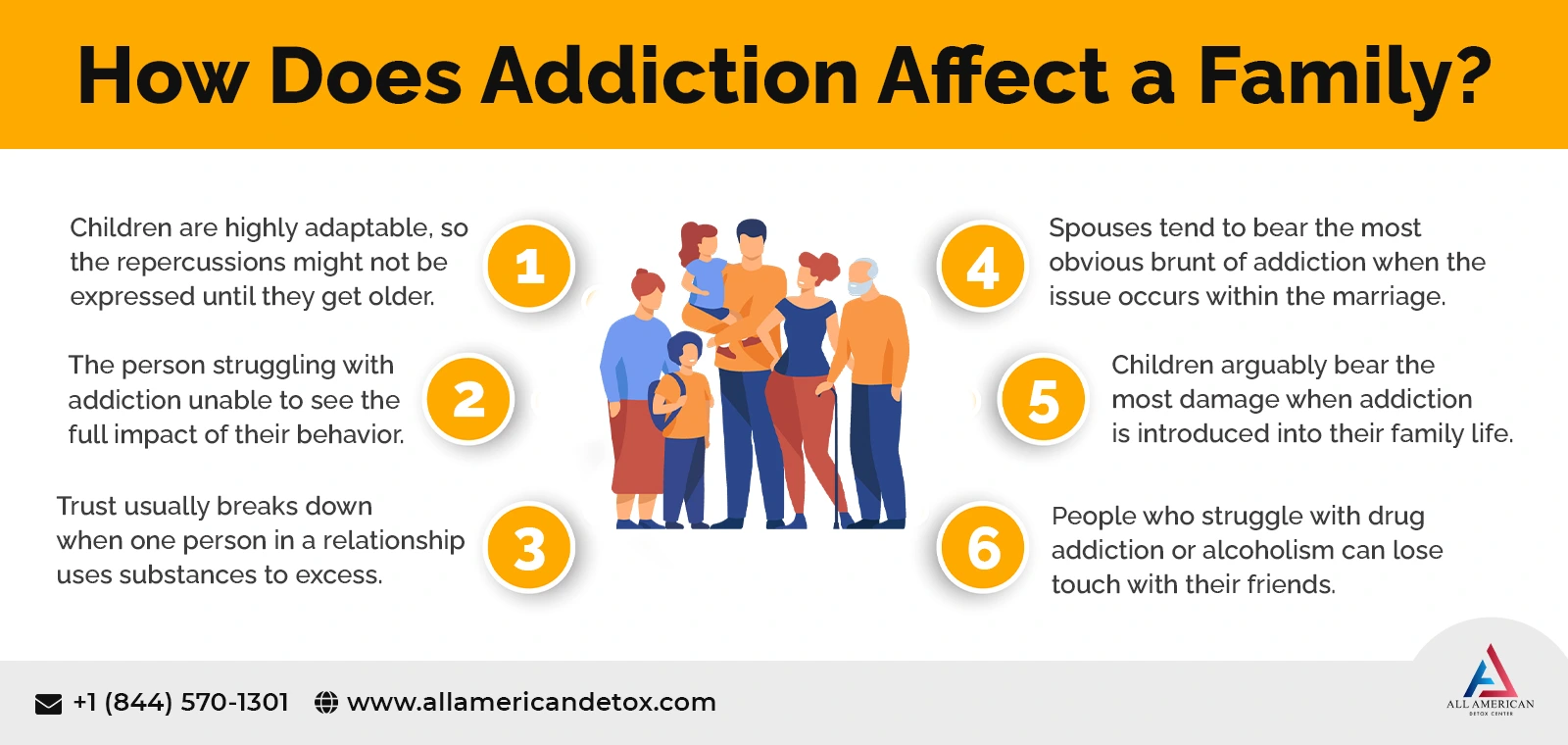If you or a loved one is considering addiction treatment, you may already be familiar with group and individual counseling. But what about other forms of therapy? In this article, we will discuss what family therapy is and who benefits from it in an addiction context.
What is family therapy?
Family therapy emerged from psychotherapy in the early 1960s. But unlike psychotherapy, which focuses on resolving issues with the individual, a family therapist looks at how one or more individuals function, resolve conflicts and communicate within the context of their family unit.
Who Benefits from Family Therapy
Family therapy shows remarkable flexibility in treating disfunction. Family units such as couples, parents with adolescent children, and even less conventional types of family units can benefit from this type of therapy.
In recent decades, many families deviate from the nuclear family norm. A practitioner may work with a family where some or all its members are unrelated. In another situation, cousins, grandparents, or siblings may play more dominant and important roles than is typical. And regardless of who comprises a family system, its members live and develop interdependently.
The Family as a Whole
Addiction is considered by many to be a family disease, and this is for many reasons. One reason is that addiction susceptibility can be inherited genetically. Also, when families succumb to addiction, it is more likely for an environment that perpetuates substance abuse across generations to be created.
The Family of The Addicted Person
If you have somebody in your family who has a substance use disorder (SUD) you are probably experiencing a range of emotions. In the throes of addiction, it is not uncommon for your loved one to engage in life-threatening behaviors, endanger others, become hostile and withdraw from family responsibilities. These behavioral issues can cause additional stress and even rifts in the relationship and may need to be resolved with family counseling.
The Person with an Addiction
A person with an addiction may resort to drug use in part to cope with the dysfunction in their family. They may feel, misunderstood, unloved, or stigmatized by family members. When treatment is underway, this loss of critical support can lead to negative outcomes and prolonged family dysfunction can worsen mental health problems like depression and anxiety.
Family therapy offers a way to address concerns on behalf of the patient, which can give them a more positive outlook towards the recovery process. This positively seems to be an important predictor of successful treatment. As one study noted, alcoholics who received family therapy were more likely to enroll in drug detox center and experience positive outcomes than those who did not.
If you are currently in addiction treatment, you may feel isolated or disconnected from your regular life. Family therapy provides a way for loved ones to be more visible and involved in addiction treatment which in many cases benefits the patient.
What are the Goals of Family Therapy?
During a family therapy session, the practitioner will interview and moderate family discussions in order to get a better understanding of how the family unit functions and determine what it does well and what problem areas need to be addressed. Specific goals include:
- Solving disputes within a family
- Improving honest engagement
- Establish boundaries
- Help families engage in healthy communication
- Foster compassion and understanding between family members
- Help individuals develop a greater awareness of family dynamics.

How Family Therapy Works with Addiction Treatment
In the interest of getting everybody on the same page, it is important to educate family members on the realities of addiction.
Family members will need to adjust to understanding addiction is a disease so that they may develop realistic expectations for treatment. Addiction is the result of numerous factors, such as genetics, trauma, mental health, and others but its outcome strips away an individual’s ability to stop using.
Taking steps like these is important for developing empathy and helpful dialogue around the subject of addiction. As family members are often subjected to stress and negative experiences it’s important to channel that into healthy, productive discussion and refrain from blaming and shaming.
If you are the one in addiction treatment, education could mean learning about how attachment styles, mental wellbeing is deeply dependent on how your family functions. This newfound awareness can then be translated to solutions, like the development of boundaries, assertiveness, the development of independence and empowerment.
Where is it Offered?
As previously mentioned, family therapy has proven to be flexible in its ability to treat issues within family systems, but it is also favored for its ability to be purposed in a variety of treatment settings such as:
- Residential Inpatient Program
- Traditional Outpatient and Intensive Outpatient Programs (IOP)
- Adolescent Addiction Treatment
- In-Home Treatment
What Approach is Right for Me?
Family Systems Therapy
Treats individuals based on their role in a larger family system. Because families share a collective history, the behavior and sense of identity that makes one feel unique are interconnected and dependent on the other members.
In addiction treatment, a family systems counselor might help you to recognize how a person’s drug usage is tied to dysfunctional patterns of communication and help them develop tools to increase mindfulness, create healthy boundaries, and promote healthy communication with loved ones.
Family Behavior Therapy (FBT)
An approach suitable for both and adults and adolescents. In this approach, patients work with their family and a therapist to develop behavioral goals. Upon meeting these goals, they are rewarded with a reinforcer or something that encourages them to continue the behavior. For example, parents might reward adolescents for remaining sober or for increasing their school attendance.
Brief Strategic Family Therapy (BSFT)
Typically lasting only 3 months split into 12-15 sessions, BSFT is an effective intervention treatment for parents with adolescents who are struggling with substance abuse and other behavioral issues. In this short but effective treatment, the therapist builds a relationship with each member of the family and learns their motives and concerns. Once this phase is completed, and mediation is underway, an action plan is developed to treat the issues and maximize the family’s overall health.
If you or a loved one is interested in learning more about addiction treatment options in the Southern California area– look no further. All American Detox offers premier detox and residential inpatient treatment. For more information, please contact us at the de-addiction helpline number


